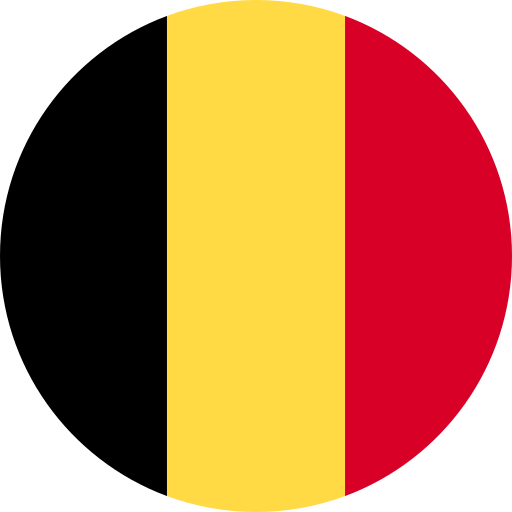Belgium is a fascinating tapestry of cultures and languages, with French and Flemish at its core. These two languages not only shape the nation’s identity but also influence its politics, education, and daily life. As you explore Belgium’s vibrant cities, you’ll notice how these linguistic roots intertwine in everything from street signs to local cuisine.
Understanding the impact of French and Flemish on Belgian society reveals much about the country’s history and its ongoing evolution. The coexistence of these languages reflects deep-seated traditions while highlighting modern challenges. Dive into this intricate relationship to uncover how language plays a vital role in shaping Belgium’s unique character.
Key Takeaways
- Belgium’s identity is deeply rooted in the coexistence of French and Flemish, influencing its culture, politics, and daily life.
- French emerged as a dominant language during the 15th century due to political influences, while Flemish developed from Dutch dialects in Northern regions.
- The establishment of linguistic borders post-1962 solidified distinct cultural identities associated with each language: Flemish in Flanders and French in Wallonia.
- French significantly impacts Belgian culture through literature, music, and gastronomy, while it plays a crucial role in political engagement within federal institutions.
- Flemish serves as the primary language for education and media in Flanders, fostering local culture and influencing regional governance.
- Belgium’s bilingual nature shapes its educational policies and sociolinguistic dynamics, promoting multilingualism and affecting social interactions among diverse communities.
Historical Overview of Belgian Languages
Belgium’s linguistic history showcases the complex interplay between French and Flemish, reflecting its diverse cultural heritage. Both languages play vital roles in societal functions and identity.
Origins of French and Flemish in Belgium
French and Flemish trace their roots to different historical contexts. French emerged as a dominant language due to political influence, particularly during the rule of the Burgundian Netherlands in the 15th century. In contrast, Flemish evolved from Dutch dialects, establishing itself in Northern regions like Flanders. The coexistence of these languages began shaping communication patterns among citizens.
Evolution of Language Use in Belgium
Language use in Belgium has evolved significantly over centuries. Initially, Latin served as the official language for administration and education until the 18th century. As nationalism grew, both French and Flemish gained prominence within local governance and schools. The establishment of linguistic borders post-1962 further solidified this duality by delineating regions where each language predominates—Flemish in Flanders and French in Wallonia—leading to distinct cultural identities shaped by these languages throughout Belgian history.
French Influence in Belgium
French significantly shapes Belgium’s cultural and political landscape. As one of the country’s primary languages, it plays a vital role in various societal aspects.
Cultural Aspects of French Language
French culture permeates Belgian life, influencing music, literature, and gastronomy. Major cities like Brussels and Liège showcase this influence through festivals celebrating French art and cinema. You can find numerous theaters offering performances in French, highlighting the language’s importance in creative expression. Additionally, culinary traditions often reflect French techniques and flavors, contributing to Belgium’s reputation for fine dining.
Political Impact of French Language
The political scene in Belgium reflects a strong French influence due to its historical significance. The use of French is prominent within federal institutions and regional governments. Political parties often engage with constituents primarily in French, particularly in Wallonia and Brussels. This linguistic preference affects policy-making processes and electoral dynamics. Understanding the political weight of the French language helps you navigate Belgium’s complex governance structure effectively.
Flemish Influence in Belgium
Flemish plays a crucial role in shaping Belgium’s cultural and linguistic identity. It serves as one of the primary languages spoken in the northern region, known as Flanders, influencing various aspects of Belgian life.
Historical Significance of Flemish Language
Flemish originated from Dutch dialects and gained prominence during historical events such as the Burgundian Netherlands’ rule. By the 19th century, nationalistic movements fueled a revival of Flemish, leading to its recognition alongside French. The establishment of linguistic borders in 1962 further solidified its status, marking a pivotal moment for protection and promotion within education and government.
Flemish Language in Modern Society
Today, Flemish significantly impacts daily life in Belgium. In Flanders, it serves as the primary language for education and media while fostering local culture through literature, music, and theater. Political discourse also reflects this influence since regional governments conduct affairs predominantly in Flemish. Additionally, businesses often utilize voice talent proficient in Flemish to reach local audiences effectively through advertisements or presentations. Understanding these dynamics can enhance your communication strategies when engaging with diverse Belgian communities.
The Bilingual Nature of Belgium
Belgium’s bilingual nature profoundly shapes its cultural and social landscape, with French and Flemish coexisting in a unique linguistic environment. This coexistence influences daily communication, government policies, education systems, and cultural expressions.
Language Policy and Education
Language policy in Belgium reflects its bilingual character. The country is divided into distinct language regions: Flanders (Flemish-speaking), Wallonia (French-speaking), and the bilingual Brussels-Capital Region. Each region implements educational frameworks that promote its primary language. In Flanders, Flemish dominates school curricula, while Wallonia emphasizes French instruction. This structured approach ensures that future generations are proficient in their regional language while also fostering some degree of multilingualism through second-language education.
The government supports various initiatives to enhance language skills across communities. Programs exist to encourage learning both languages from an early age, fostering understanding and cooperation among different linguistic groups. In higher education institutions, courses often offer programs in both languages, accommodating diverse student populations.
Sociolinguistic Dynamics
Sociolinguistic dynamics within Belgium reflect the intricate relationship between different language communities. The interplay between French and Flemish extends beyond mere communication; it impacts identity formation among Belgians. Language acts as a marker of cultural belonging—affecting social interactions, professional environments, and public discourse.
In urban areas like Brussels where both languages are prevalent, you’ll find a blend of linguistic practices emerging from everyday life. Bilingualism becomes commonplace as individuals switch between languages depending on context or audience—a phenomenon known as code-switching. Such dynamic interactions illustrate how deeply embedded these languages are within the fabric of Belgian society.
Political discourse also mirrors this sociolinguistic complexity; debates often revolve around linguistic rights and representation in governance structures. Understanding these dynamics is crucial for navigating Belgium’s multifaceted identity shaped by its dual languages.
Conclusion
Belgium’s identity is intricately woven through the threads of French and Flemish languages. These languages do more than just facilitate communication; they shape social dynamics, cultural expressions, and political frameworks across the nation. By understanding their influence, you gain insight into how language acts as a powerful tool for connection and division alike.
As you explore Belgium’s vibrant culture further, consider how these linguistic traditions continue to evolve. Whether you’re immersed in the art scene of Brussels or indulging in Flemish gastronomy, you’ll find that language remains at the heart of what it means to be Belgian today.
Frequently Asked Questions
What are the main languages spoken in Belgium?
Belgium has three official languages: Dutch (Flemish), French, and German. The country is divided into linguistic regions, with Dutch predominantly spoken in Flanders, French in Wallonia, and a small German-speaking community.
How do French and Flemish influence Belgian culture?
French and Flemish significantly shape Belgium’s cultural landscape through literature, music, art, and festivals. Major cities celebrate both cultures’ contributions, reflecting their importance in daily life and national identity.
What historical factors contributed to Belgium’s linguistic division?
The historical context of linguistic division in Belgium includes the dominance of French during the Burgundian period and the rise of Flemish due to nationalism. Linguistic borders established post-1962 further solidified these distinctions.
Why is bilingualism important in Belgium?
Bilingualism is crucial for navigating Belgium’s diverse society. It influences communication between communities, government policies, education systems, and enhances mutual understanding among different language speakers.
How does language affect politics in Belgium?
Language plays a vital role in Belgian politics. Federal institutions operate primarily in French or Flemish based on region. This influence affects policy-making processes and electoral dynamics within various governmental structures.
What role does education play in promoting language skills?
The Belgian government promotes structured language policies within its education system to enhance proficiency across communities. This fosters cooperation among different linguistic groups while preserving each language’s cultural heritage.
How has the use of Latin changed over time in Belgium?
Latin was once the official language but gradually declined as nationalism grew during the 19th century. This shift saw French become dominant initially before Flemish also gained prominence alongside it.







